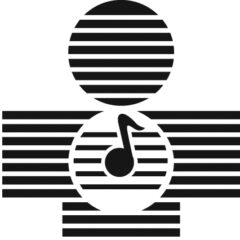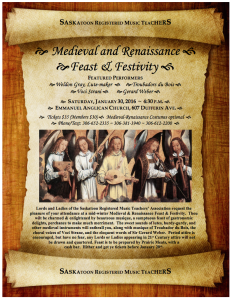Click here to download a registration form for convention!
Click here to download the convention schedule!
SRMTA FALL CONVENTION & AGM 2018
Teaching Music: Staying Relevant in Today’s World
SASKATOON
Park Town Hotel & University of Saskatchewan
Friday, October 12, 2018
12:30-1:20 Mini recital/talk by Honens Competition Laureate Winner – Nicholas Namoradze
Quance Theatre- U of S- (free to Convention registrants)
1:00 p.m. Registration at the Cedar Room, Park Town Hotel
Trade Show- Maple Room
1:30 p.m. Welcome & Introduction
1:45 p.m. Maria Case-The Royal Conservatory of Music- Part 1
The Royal Conservatory has been a leader in education for over 130 years and continues
to evolve in response to the changing world. Join Maria Case for an
exploration of recent initiatives, and an opportunity to have your questions answered.
This guided tour of new resources and tools developed by the RCM to support the
development of the complete musician will include: The Theory Syllabus, 2016 Edition,
and Celebrate Theory series; Engaging Digital Apps that serve as valuable practice tools;
Innovative online courses for students, and how to incorporate them into your teaching.
2:30 p.m. Maria Case-The Royal Conservatory of Music Part 2
3:30 p.m. Janice Elliott-Denike: During this centenary year of Debussy’s death, Janice will give a
practical, “hands-on’ presentation about teaching his piano music, looking at specific
pieces as well as an overall repertoire guideline. Bring your Debussy scores and a pencil!
4:30 p.m. Janice Elliott-Denike- Debussy Part 2
7:30 p.m. Concert Event: Convocation Hall- in the Peter MacKinnon Building (U of S Campus).
The Saskatoon Registered Music Teachers Association and the SSO are proud to present
a recital featuring one of the brand new 2018 Honens Piano Competition Laureates.
The Honens Piano Competition takes place every three years and is considered one of the
world’s most prestigious events of its kind. Honens prepares its Laureates for the rigours
and realities of professional careers in music and creates opportunities for growth and
exposure. The annual Honens Festival is one of Canada’s premier piano events.
President’s Reception to follow at the Park Town Hotel- Presidential Suite
Saturday, October 13, 2018
9:00 a.m. Brainstorm Session: “You Tube vs. You Teacher”.
Why would a student choose to learn a piece of music from one of us rather than the
internet? (Facilitator- Michelle Aalders)
9:30 a.m. Dale Wheeler: “Teacher Know Thyself”
How do our teaching practices contribute to our personal growth and ongoing
professional development. Explore how our studio environment, lesson procedure and
analytical and diagnostic skills contribute to our success as teachers, and as a result, the
success of our students.
10:45 a.m. Dale Wheeler: “Do You Hear What I Hear” Teaching Students to Listen.
One of the major tasks facing a teacher is getting students to listen to themselves. The
main difficulty is in teaching WHAT to listen for–the HOW to listen comes later
– strategies for helping students to become better listeners.
12:45-p.m. Annual General Meeting (AGM)- Cedar Room
1:45 p.m. Karen Gerelus: “It’s Not You, It’s Me”
Teachers often wonder why students quit piano lessons. This study is the first to use
Self-Determination Theory to assess levels of motivation in piano students and also
analyzed seven predictors of student attrition. This session will take the inverse of
the dropout results and offer recommendations on how to retain students.
3:00-4:00 Mary Joy Nelson- “From Bellini to Belt”
This presentation will focus on a specific branch of Contemporary
Commercial voice: the female belt voice. Classical pedagogical approaches will be
compared and contrasted with those used to train the female belt voice,
including similarities in breathing, posture, registration, tone quality/resonance, and
range. The benefits of cross training for both the musical theatre and
the classical voice student will be addressed. For the recital portion of the presentation,
a performance of song selections will allow the listener to compare and contrast aurally
the various sounds and approaches in classical and musical theatre singing described in
the lecture.


